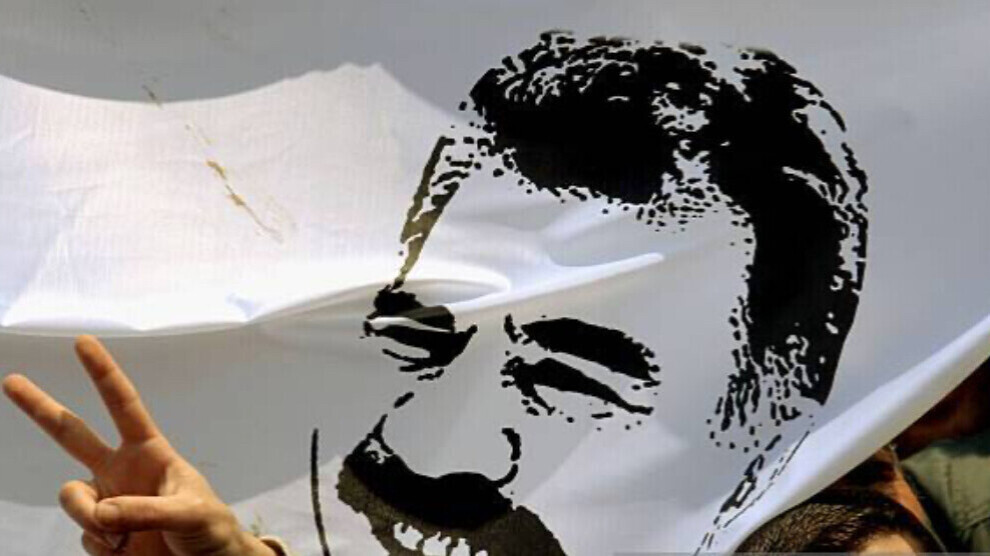Lawyers of Öcalan: CPT must urgently visit Imrali
The lawyers of the Asrin Law Office call on the Council of Europe's Committee for the Prevention of Torture to urgently visit Abdullah Öcalan and the other prisoners totally isolated on Imrali.
The lawyers of the Asrin Law Office call on the Council of Europe's Committee for the Prevention of Torture to urgently visit Abdullah Öcalan and the other prisoners totally isolated on Imrali.

For 17 months, no information has come from the prison island of Imrali, where Kurdish leader Abdullah Öcalan and political prisoners Hamili Yıldırım, Ömer Hayri Konar and Veysi Aktaş are totally isolated.
The Asrin Law Office has now submitted an urgent request to the Council of Europe's Committee for the Prevention of Torture (CPT), calling for an immediate visit to Imrali by a CPT delegation. The lawyers described the detention as "incommunicado" detention. This form of total information and contact blockage is prohibited under international law. The lawyers speak of a systematic violation of the prohibition of torture on Imrali. The application focuses in particular on the violations of rights in the period between April and August of this year.
61 requests rejected in five months
The letter to the CPT reports that the Bursa Chief Public Prosecutor's Office and the Imrali prison administration have rejected 40 requests for visits by lawyers and 21 requests for visits by families.
775 lawyers' requests ignored
On 10 June 2022, 775 lawyers applied to the Bursa Chief Public Prosecutor's Office and the Imrali Prison Management requesting to visit prisoners in Imrali in protest at the isolation. However, their requests were completely ignored.
The lawyers also criticised that telephone calls and visits on holidays were prevented and that it was not even known whether the letters to their clients sent between March and August had been received.
The lawyers also reported new visitation bans and disciplinary sanctions. The Asrin Law Office stated that although the six-month ban on visiting lawyers imposed on 12 October 2021 expired on 22 April 2022, a visitation request made immediately afterwards was simply ignored.
In the meantime, however, it has become known that the 2nd Bursa Enforcement Court issued a new six-month ban for lawyers on 13 April 2022, i.e. before the expiry of the ban. The lawyers pointed out that they only learned about this decision after the fact.
Disciplinary sanctions are imposed secretly
The lawyers report that although a sentence imposed by the Imrali Disciplinary Committee on 3 February 2022 expired in June, another request for a visit was rejected. The next higher court, the 1st Correctional Court in Bursa, again rejected the request. The lawyers were told that the "disciplinary sentence" was still in effect. However, the sentence referred to had already ended on 22 May. The lawyers learned that a new three-month disciplinary sentence had been imposed on 31 May 2022.
The lawyers' office criticised the "secret" imposition of this penalty, saying that it prevented any legal protection for their clients, defining it as a criminal offence.
The lawyers also stated that all contact between Öcalan and the other prisoners on Imrali and the outside world was being blocked without interruption and that the prisoners were being denied any legal protection.
The lawyers called on the CPT to visit Imrali immediately and stressed that it was the CPT's fundamental duty to prevent further harm to the detainees. Furthermore, they said, the CPT must ensure that continuous visits by lawyers are made possible and that the prevention of such visits by unlawful court decisions comes to an end.
“At the same time, while guaranteeing the right to visit, the right to regular telephone calls must also be made possible and all obstacles to letters and faxes removed. Restrictions on prisoners' access to magazines, newspapers and books must be lifted, said the lawyers.
The lawyers concluded: "It is urged that coercive measures be taken to eliminate conditions of torture, inhuman treatment and ill-treatment, as well as incommunicado detention, and that the procedures provided for in Article 10/2 of the Convention be followed.”